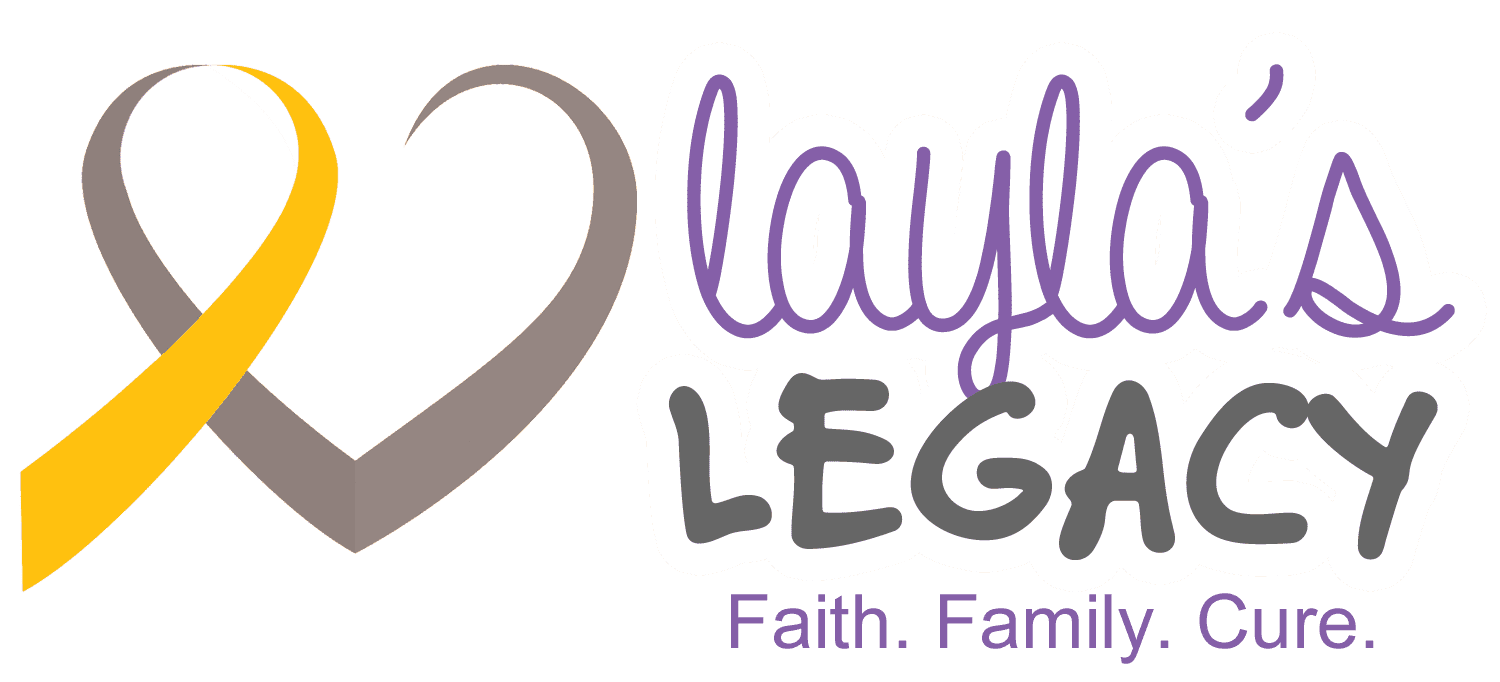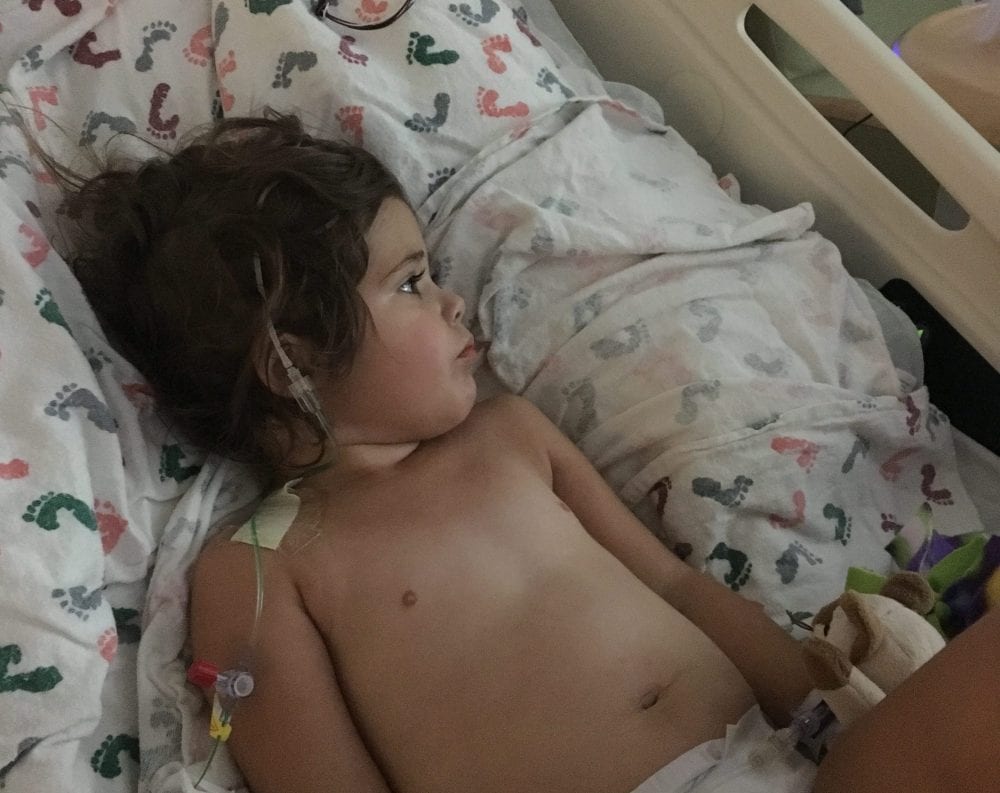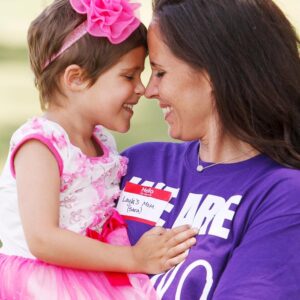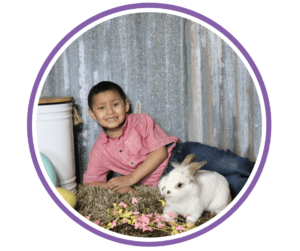

In the beginning…
You can’t believe that someone close to you has a child that was just diagnosed with cancer. How did this happen? You see things like this on t.v. commercials and billboards, but you never thought you’d actually know someone in real life. The same question going through that parent’s mind is going through yours – What now?
There is no way to prepare for this, so trust me when I say this family is going to need your help. But how? Great question. Momcologists (that’s a mom of a child who has cancer…like an oncologist, but a mom) could write a book about the good, the bad and the ugly when it comes to receiving help from friends and family. My goal here is to keep you off the bad and the ugly list.
Before we jump in, though, I want you to take note of the rest of the community around this family. Does there seem to be a person other than mom or dad giving updates, answering questions or coordinating things? If not, they need that person. Maybe more than one and they need to live in close proximity to the family. Mom and dad do not need to be answering a hundred text messages or emails to convey the same piece of information or to find a volunteer to help out with a sibling or to bring clean clothes to the hospital. So job #1 for you is to make that happen.
Every family situation is going to be different. From who the primary caregiver is (forgive me dads for mostly referencing “mom”), the financial situation, distance from the hospital and treatment schedule just to name a few. I reached out to my community of Momcologists and asked the question “What were the things people did for you shortly after diagnosis that were the most helpful?” Here is our list. Cancer-mom approved.
Food
Food seems to be the go-to move whenever there’s an illness or a new baby, right? What is it about hospitals that make us think, “these people are going to be hungry?” All kidding aside, not having to think or plan for meals is a huge load off the mind when you’re feeling completely overwhelmed. It’s no wonder this item was listed by virtually every single mom I surveyed.
But what if the family doesn’t want a meal train? I eventually canceled the meal train our wonderful friends had organized because it was just too much food. Instead, we requested people switch to sending gift cards if they wanted to help out. This was so much better for our situation because I could use them at the hospital to order meals delivered and dad and brother could use them at restaurants near home. They never go bad or expire and it allows loved ones that live far away to participate as well.
Also, don’t forget about grocery store gift cards! Find out what stores the family frequents and load them up with those. As one mom told me, “I just wanted to feel a sense of normalcy and cooking my own meals helped with that.” If you’re a very close friend or family member, go to the store and stock the fridge with essentials for them before they get home. That’s a fun surprise!
Other food-related ideas to consider: Grocery delivery service so the parents don’t have to get out to run errands. Apps like Instacart and Shipt are great for this. Meal delivery like HelloFresh. Amazon delivery of non-perishable goods like paper towels and toilet paper.
So, to sum up food: Start the meal train, but check in with the family to make sure it meets their long-term needs. It might end up being a combination of all the options depending on their treatment schedule.
Siblings and pets
Long hospital stays can mean long stretches away from home. Not everyone is as fortunate as we were to have an amazing children’s hospital in their city, so going for treatment may mean driving hours to another city or even state. If there are other children at home, go ahead and queue the parental guilt because it’s going to get ugly. Having someone you can trust and rely on to help with siblings is an amazing gift.
Whether it’s helping with school transportation, play dates, sports practices and games, this category is wide and varied. Many times siblings end up staying with extended family like grandparents. More than one mom mentioned how friends would come to pick up the brother or sisters and take them out to dinner, the movies or the mall. A cancer diagnosis is incredibly difficult for the entire family. Showing love to the siblings is a major kindness and huge help for the parents.
One of the most amazing stories I’ve heard comes from my friend Natalie. Her son’s birthday was just a few weeks after her daughter was diagnosed with leukemia. She had no energy to even think about planning a party but hated the thought of skipping something so important to her son. Her friends stepped in and saved the day by scheduling, organizing and executing the entire shindig.
Maybe the other kids at your house are all fur-babies. Boarding can get expensive, so offering to step in and take care of the pets is a huge help as well. A mom in one of the online cancer support groups told me her dad came and took their two dogs back to his house for a year while their child went through treatment. That is seriously amazing!
Housework
Coming home from an extended stay at the hospital is a huge relief…until you realize what’s greeting you are piles of laundry, dirty bathrooms and an un-mowed lawn. I recall unpacking from our week-long chemo treatments and being completely overwhelmed with all that needed to be done at home and I just wanted to take a nap in my own bed.
Get a group of people together to pitch in and have a housekeeper come regularly. Or maybe it’s just a group of volunteers who are willing to clean their friend’s house. Either way, the parents (especially the mom) will thank you! Don’t forget about the laundry. Our friends used to take loads to their house, wash/dry/fold and bring it all back like wonderful laundry fairies. Everyone needs a laundry fairy.
As I talked to other parents about what they found to be most helpful, the thing that ranked almost as high as the food category was having someone take care of the lawn. I love the way one mom put it when she said: “Precious time at home shouldn’t be spent on yard work.” Amen, sister. If the family has the opportunity to be home for an extended period of time, they should be doing things AS A FAMILY. So hey neighbor, while you’re at it, push that mower over next door and take care of their yard, ok? Thanks!
Visiting
Do you know what a parent stuck in the hospital with their child really wants? Not to feel alone. And for their child to not feel alone. Use good judgment if you’re not feeling well or have been around someone who is sick. Otherwise please come visit us (unless you’ve been specifically told not to. Then don’t).
If you haven’t had to stay in a hospital room for an extended period of time, consider yourself lucky. For me, the walls would start closing in around me on day three. It gave me renewed strength just having someone come sit and talk with us or go for a short walk outside. After our initial diagnosis and surgery, I didn’t walk outside for almost a week. Seeing friends was extremely beneficial for Layla as well. She got tired of talking to just mom all the time and Lord knows she spent too much time on the iPad.
Be sure to let your kids come visit their friends who have cancer. If not in the hospital, then definitely when they are home. Peer support is not just for parents. I can’t tell you how many times I hear stories about outgoing kids with lots of friends spiraling into depression because none of those friends were there for them while they were sick.
Hold tight, I’m going to get on my soapbox for a second: Childhood cancer advocacy starts with our children. If we’re teaching them to be afraid or worse, not talking about it at all, we are robbing them of the opportunity to develop empathy for their peers. Statistically speaking, 1 in 285 children will be diagnosed with cancer before the age of 20, so the likelihood of your child going to school with someone who has cancer is high. We can empower our kids to advocate at an early age! They are not too young to make an impact! [stepping off soapbox]
If the child goes to school with your child, talk to their school about a letter writing campaign. Kids love to get mail and cards and it will remind them they are missed and being thought of. Crossing over into the next category a little prematurely, but having shirts or bracelets made for the kids at school to show their support, doing a penny or change drive for the family…basically, anything to involve the school and classmates.
Support
Let’s just go ahead and use the “m-word.” We’re talking money here. This category is a bit of a no-brainer, but like food, is not necessarily one-size-fits-all. Usually, the first thing that happens when a family is in crisis is a friend or family member starts a GoFundMe account. That’s great as long as the community around the family has money to give. Very rarely, does something like that go viral where hundreds of thousands of dollars are raised overnight. If it happened every day, Layla’s Legacy wouldn’t need to exist, and that would actually be pretty awesome.
Little things also make a huge impact. One mom mentioned a friend giving them access to their Netflix account and loaning them an iPad. When we were inpatient, Layla couldn’t go to the playroom because of an infection she had. She loved to do crafts, so our friends kept her stocked up on loads of them to keep her busy. For older kids, audiobooks, DVDs, books (or a Kindle), iTunes gift cards for gaming or music plus headphones are great ideas.
Gas cards and generic gift cards are perfect if you hate the idea of fees going to online fundraising. They are perfect because the family will always need them. I never worried about having the cash for the vending machines because I could swipe a Visa gift card. If you have a co-worker living this nightmare, see about donating vacation time. I know a mom who received this gift so she didn’t have to take unpaid leave after her paid family leave of absence expired. This allowed her to keep receiving a paycheck and still stay at the hospital with her son. HUGE!
Let’s review
Food, siblings, chores, visiting and monetary support.
The journey in front of this family is long. I could think of twenty more categories and ways to help them. If there is one thing I can stress above all else, it’s that they’re going to need you to be in it for the long haul, too. Things like this tend to show us who our ride-or-die friends truly are, so be one of those friends. If they aren’t asking for help, don’t assume that’s because they don’t need it. Assume it’s because they’re proud or stubborn or don’t know how to ask (I was that person!).
If you are a family going through this right now, I’m so sorry. I’m praying your community has you covered. Are you through treatment and on the other side? Please comment and let us know any other ideas you can give.

Sara Stamp
Layla’s Legacy Foundation is a 501(c)(3) organization funding innovative pediatric brain cancer research while bringing hope and help to families impacted by the disease.




